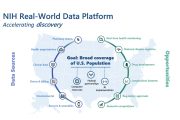
Californians have been spared the horrors of single-payer healthcare for a little longer, thanks to a Friday decision by Assembly Speaker Anthony Rendon to put a universal healthcare bill passed by the state Senate on hold for the remainder of the year.
Rendon, a Democrat who supports single-payer, said in a statement that he was keeping the bill in committee “until further notice” rather than bringing it to the floor for a vote. He called the bill, which would replace California’s current public and private health-insurance systems with a single state-run program to cover virtually all healthcare expenses, “woefully incomplete.”
“Even senators who voted for [the bill] noted there are potentially fatal flaws in the bill, including the fact it does not address many serious issues, such as financing, delivery of care, cost controls, or the realities of needed action by the Trump Administration and voters to make [the bill] a genuine piece of legislation,” Rendon added.
The cost of the measure is perhaps its biggest hurdle. The Democrat-controlled Senate Appropriations Committee estimated last month that the bill, sponsored by Senators Ricardo Lara and Toni Atkins, would cost the state $400 billion a year, more than twice its existing annual budget. That would require a doubling of state taxes and also necessitate concessions from the federal government on Medicare, Medicaid, ObamaCare, and other programs. Despite this, the Senate passed the bill the following week.
“Before the Senate vote, Lara and Atkins acknowledged that the bill lacked critical language describing how the state would come up with the money,” reported the Sacramento Bee. “At the time, they said the bill would be amended to include a funding plan before an Assembly floor vote and return to the Senate before it reached the governor’s desk.”
To the surprise of at least one observer, such assurances weren’t sufficient to get the bill through the Assembly. “As one who’s watched Sacramento closely over the last four years, Rendon’s move is stunning,” wrote Townhall’s Jennifer Van Laar. “During this era of almost unchecked Democrat power, skeletal bills are passed and signed into law routinely, and then bureaucrats decide the details later in the form of regulations.”
According to the Bee, Lara and Atkins “acknowledged the bill was dead for the year.” Rendon made it clear that the bill was down but not out, noting that since 2017 “is the first year of a two-year session,” his action “leaves open the exact deep discussion and debate the senators who voted for [the bill] repeatedly said is needed.” He asked the Senate to “use that time to fill the holes” in the measure.
“In other words,” remarked Van Laar, “this proposal is so bad that Rendon doesn’t want to be associated with it, and he’s telling them to come back when they’re serious.”
University of California San Diego political science professor Thad Kousser concurred, telling the San Jose Mercury News that Rendon’s comment about “fill[ing] the holes” was a “little bit of a slap” at the Senate. “What the Senate did to the Assembly,” he said, “was send a politically popular but not perfectly worked out bill and made the Assembly do the dirty work of killing it.”
Lara and Atkins, for their part, issued a statement saying they were “disappointed” in Rendon’s move. They did not criticize the speaker and in fact echoed his calls for continuing the push for universal healthcare in California in light of the attempts by Congress to modify ObamaCare. “California has the chance to lead our nation toward healthcare for all, and we will not turn our backs on this matter of life or death for families,” they declared.
Not all single-payer proponents were so reserved in public.
The California Nurses Association, one of the most vocal supporters of the bill, issued a press release saying the union “condemns the decision by Assembly Speaker Anthony Rendon to destroy the aspirations of millions of Californians for guaranteed health care without being bankrupted or forced to skip needed care.” Co-president Deborah Burger said tabling the bill was “a cowardly act, developed in secret without engaging the thousands of Californians who have rallied to enact real health care reform.”
U.S. Senator Bernie Sanders (I-Vt.), who campaigned for the California bill and intends to introduce similar legislation in Washington, Tweeted, “Please call on California Speaker @Rendon63rd to reverse his decision & let the Assembly VOTE on SB 562 — the single-payer health care bill!”
Universal healthcare is thus on hold in the Golden State for the time being, but it is by no means gone forever. “The fight for single payer also is moving forward on other fronts,” Rendon observed in his statement, pointing to a movement to “get a single payer initiative on the ballot.” The California Democratic Party’s 2016 platform calls for single-payer, though some of those seeking its 2018 gubernatorial nomination don’t see eye-to-eye on the matter. “Former Los Angeles Mayor Antonio Villaraigosa compared unfunded health care promises to ‘snake oil,’ a not-so-veiled blow at rival Lt. Gov. Gavin Newsom, who has pledged to support a universal health system if elected governor,” wrote the Bee.
Californians who prefer to retain at least a semblance of individual liberty and free markets in healthcare — not to mention their current tax rates — will need to remain vigilant.




